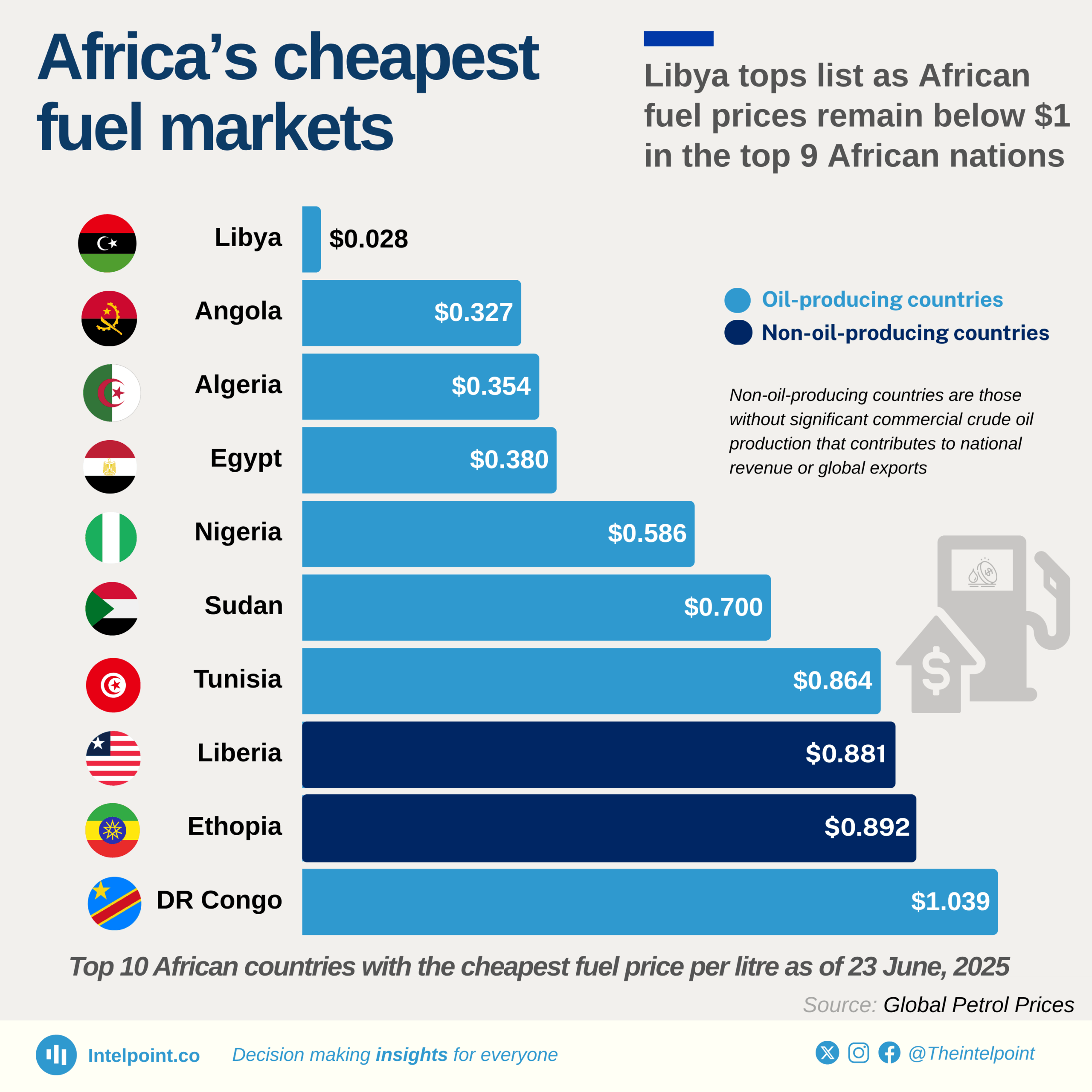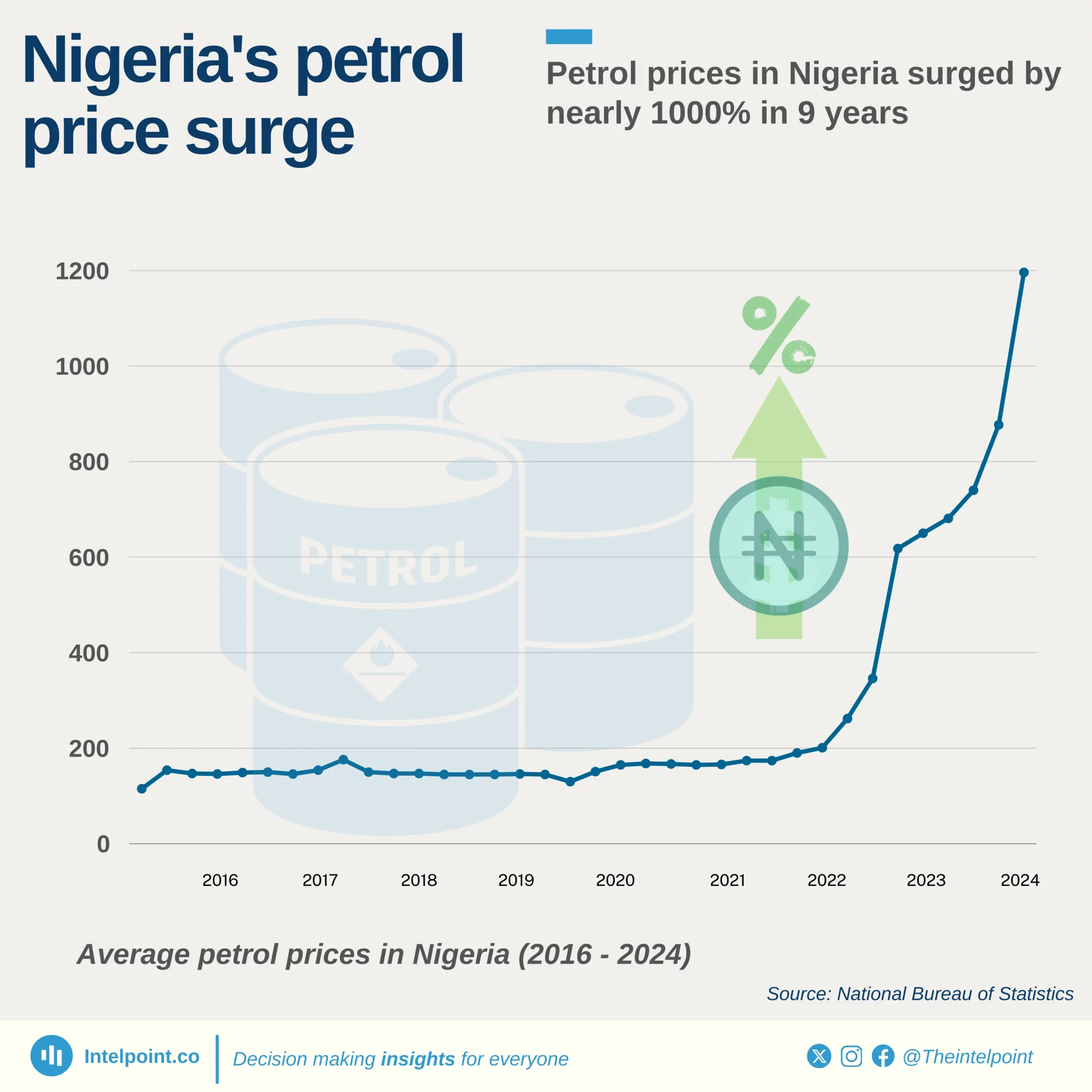In 2023, Nigeria saw a 17% reduction in petrol supply as imports fell by nearly 14% from 23.5 billion litres in 2022 to 20.3 billion litres.
The removal of the fuel subsidy in May 2023 led to higher prices and lower demand, especially in the second half of the year.
The Dangote refinery’s rising output could shape future supply.



